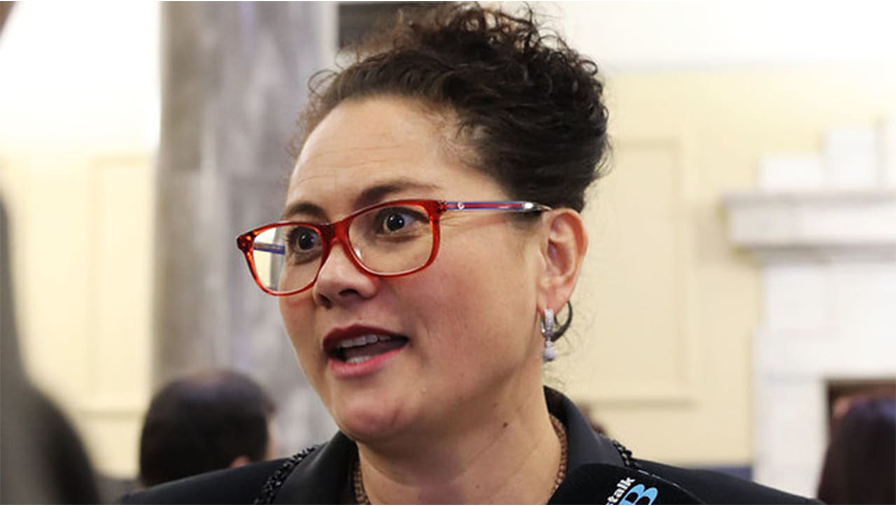MP resignations, open government and benefit boosts
ANALYSIS: Bryce Edwards says there’s a looming public crisis of confidence in government.
ANALYSIS: Bryce Edwards says there’s a looming public crisis of confidence in government.
Political commentator Bryce Edwards says a lack of Government transparency is leading to a crisis of confidence “or, at least, the public’s erosion of faith in institutions”.
When she first took office in 2017, Prime Minister Jacinda Ardern promised her government would be the most open and transparent New Zealand has seen, particularly around official information.
But commentator Grant Walker argues the Government has broken that promise by quashing questions and shutting down calls for inquiries while at the same time tightening its grip on the release of information.
Edwards says that is the new law of politics, no matter who is in power, but it is getting worse.
“Each government is more opaque, secretive than the one before but they always promise they will deliver more in this area.”
Edwards thinks there needs to be a reform of the Official Information Act.
“It’s not necessarily that the OIA is broken, it’s broken in the way that the government agencies and the Beehive deal with it. Especially now that we see the Beehive moving so much in sync with PR lobbyists and using attempts to sculpture the media with influencers and contractors. It’s just too much power on the governmental side and not enough in what I think is the Fourth Estate’s role.”

The Chief Ombudsman’s office said that complaints about responses to OIA requests had risen 23.5% to 892 in the six months to December 31, 2021. For the 2021 calendar year, there were a total of 1614 complaints about OIA responses from central government agencies received by the Ombudsman, up a third on the prior year.
Chief Ombudsman Peter Boshier said it was perhaps unsurprising that complaints about OIA responses had increased by so much given we were living through a pandemic and a huge amount of information was being generated about the Government’s actions and decisions that were affecting people. Most OIA complaints (71%) were from individuals and 17% from media.
“I appreciate that agencies are under pressure from a large number of requests under the OIA and LGOIMA but they should not lose sight of the need to fulfil their obligations under the laws,” he said.

MP resignation
Labour MP Louisa Wall, who won marriage equality for same-sex couples, resigned this week after 14 years in Parliament. The South Auckland list MP was first elected in 2008 on her party’s list and then held the Manurewa seat from 2011 to 2020 but was pressured not to run again in Manurewa at the last election.
Her resignation statement was short and sweet and she’s made no comment since then, saving it up for her farewell valedictory speech at Parliament on April 14.
Edwards says the writing has been on the wall since the last election and she knew she was on her way out. She considered legal action against the party’s ruling New Zealand Council over the Manurewa seat but instead did a deal that gave her a good ranking on the list and a good appointment to help her exit Parliament.
“That’s why we’re seeing silence both from Labour and herself. She put out the barest minimum statement about her retirement which is incredibly unusual. In fact, I got it from the Prime Minister’s press office so it was all arranged, all synchronised.”
While people were expecting fireworks from her valedictory speech and for her to unbundle on how badly she has been treated, Edwards says it’s more likely to be a damp squib, where she mends fences, goes out on a high note, and then we’ll find out what her next appointment is from this Government.
“Everyone knows she’s lost the confidence, pretty much, of the leadership.”
Parliament passed a law legalising gay marriage in 2013 after MPs held a conscience vote on the private member’s bill sponsored by Wall. It came 27 years after New Zealand had decriminalised homosexuality.
Edwards says while Wall can be proud of that legacy, he worries whether political deals on private members’ bills don’t carry the public along with them. “It’s a messy way of creating social change.”

Benefit boost
A range of measures putting more money into the pockets of beneficiaries and low-income earners came into effect on April 1, with the Government saying the move would go so way to combatting rising prices.
Benefit rates rose by between $20 and $42 per adult per week compared to July last year while the minimum wage lifted to $21.20 from $20 per hour and Working for Families tax credits were bumped up too. The Winter Energy Payment also returns from May to October, giving eligible single people with no dependents $20.16 a week and $31.82 for couples and people with dependent children.
While the Government said the benefit boost would help answer rising prices, critics said it didn’t go far enough given three-decade high inflation and sky-rocketing food and fuel prices.
Walker says the measures had been coming anyway despite the latest cost of living crisis.
“It’s a nice response but we’re at 6% inflation going up further and this isn’t going to even leave people standing still, they’re going to go backwards, especially the poor who obviously spend a much greater proportion of their incomes on petrol, supermarkets, accommodations and those are the big ones. No, this Government is not really looking after its own,” Edwards says.
The Greens have called for more action, including breaking up the Foodstuffs and Countdown supermarket duopoly.
“We’re seeing the Greens being the conscience of the Labour Party,” says Edwards even though they have been relatively quiet over the two years of the Covid pandemic and co-leader James Shaw is focused on climate change.
“It doesn’t really leave them much room for differentiating with the Government but on issues of poverty that is their big one where they can stake out and win some of those more left-wing voters that might be just a bit less convinced this is a transformational government.”
Edwards expects the next Budget to be delivered by the Finance Minister on May 19 will include “some sweeteners in there for the Greens, especially on climate if they play nice”.
With Labour’s support dragging in recent political polls, Edwards says Grant Robertson is likely to make a few other last-minute tweaks to try to answer critics of the Government.
“He’s not just the Finance Minister, he is actually the strategist really for the Labour Government and he’s smart, he’s cunning and he will be using this Budget to try and fix Labour’s problems.”
Sign up to get the latest stories and insights delivered to your inbox – free, every day.